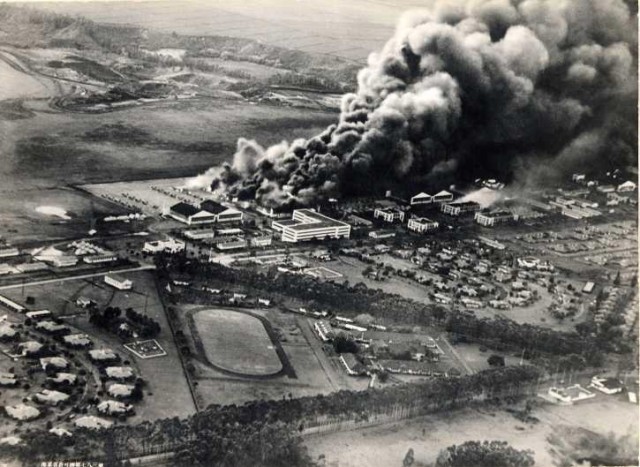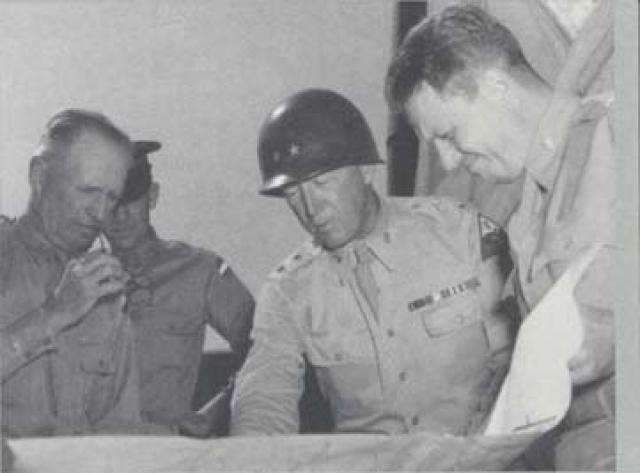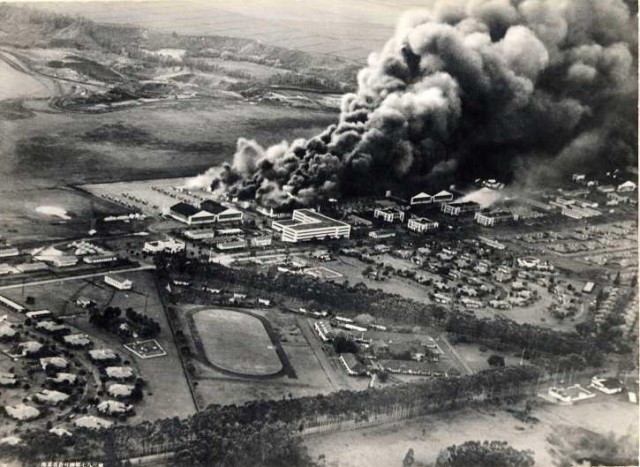ARLINGTON, Va. (Army News Service, Dec. 7, 2012) -- While many Americans know Dec. 7, 2012, as the 71st anniversary of the attack on Pearl Harbor, few are familiar with the role Gen. George Patton played in foreshadowing it.
The Japanese Empire had been on the move in the Orient since its defeat of Russia in 1904 at Port Arthur, Manchuria. Next came the conquest of Korea, to be followed in World War I by the annexation of most of the German colonies in the Pacific; the Carolines, Gilberts, Marianas island groups, plus the German colony on the Chinese coast at Tsaingtao.
The Japaneses urge to expand their empire throughout the Orient has been written about by such Americans as Homer Lea and Jack London prior to World War I and, most notably, by Gen. Billy Mitchell in the mid 1920s.
Then in 1931, Japan openly invaded Manchuria to claim its rich natural resources. This was followed in July of 1937 by the infamous Marco Polo Bridge Incident which instigated the Second Sino-Japanese War.
This was followed by attacks on Shanghai and Nanking and finally the air attack on the American gunboat, USS Panay. This latter act of aggression was filmed by cameramen onboard the Panay and on the river bank, both openly showing Japanese aircraft attacking the Panay with the American flag flying.
It was at this latter time period that Patton was the intelligence officer of the Hawaiian Division, as it was then known. In his 1937 report dated, June 3, he concluded Japan was willing and possibly able to attack Hawaii. His report detailed the following:
1. This study is based on the inescapable assumption that complete surprise offers the greatest opportunity for the successful capture of these islands.
2. Some of the Mandate Islands [noted above as the Carolines, Gilberts and Marianas], about which absolutely nothing is known, are only 2,500 miles distant, seven days' steaming over the loneliest sea lanes in the world. Who can say that an expeditionary force is not in these islands now.
3. Since becoming modernized, Japan has never declared war.
4. To facilitate the capture and occupation of an advance base, the air and submarine forces on Oahu must be destroyed or neutralized.
5. A consideration of the foregoing impels the thought that when and if circumstances impel Japan to attempt the capture of these islands, the following method of procedure on her part is fraught with the gravest danger to us.
a. The unheralded arrival during a period of profound peace of a Japanese expeditionary force within 200 miles of Oahu during darkness. This force to be proceeded by submarines [that] will be in the immediate vicinity of Pearl Harbor.
6. The vital necessity to Japan of a short war and of the possession at its termination of land areas for bargaining purposes may impel her to take drastic measures. It is the duty of the military forces to prepare against the worst possible eventualities.
As Patton would write so often during his illustrious career: ''To be a successful Soldier, you must know history."
Related Links:
U.S. Army Center of Military History: The Pearl Harbor Attack




Social Sharing